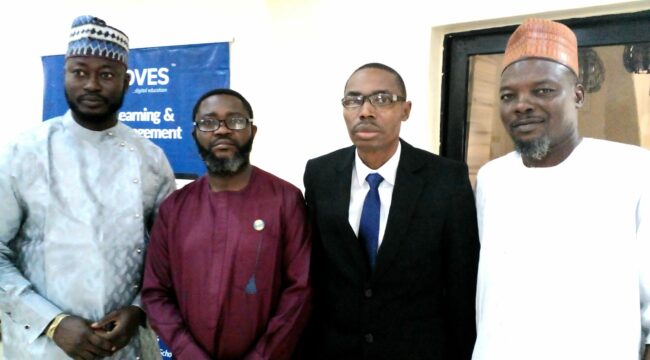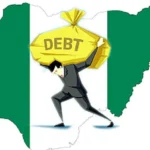Private school owners, under the aegis of the League of Muslim School Proprietors (LEAMSP), in the country have expressed worries over the increasing cost of their operations due to galloping inflation being daily experienced in the country, saying should the government fail to address the concern and reverse the trend, many more private schools in the country would close down permanently.
The National President of LEAMSP, Abdulwahid Obalakun, raised the concern at this year’s annual proprietors’ summit organized by the Lagos State chapter of the group, with the theme: “Leading Transformation, Pragmatic Steps to Drive Changes.”
According to him, running private schools nowadays in Nigeria is becoming more difficult as the prices of educational needs and services keep rising each day.
Explaining the challenges private school owners faced in the country, particularly since the outbreak of COVID-19 and the resultant global lockdown, Obalakun declared that the current high cost of petrol and goods and services due to the recent removal of fuel subsidy by the Federal Government has compounded their problems, just like many other private businesses in the country.
“And so, many more private schools may close down to join those that had closed down due to the COVID-19 lockdown because they could not cope,” he warned.
Obalakun explained that it is not that LEAMSP is against subsidy removal on petrol, even though it has significantly pushed up the costs of running schools. He stated that the government should not leave out private schools from its plans and programs to cushion the effect of the removal.
He said education is a social service that should be provided by the government for its citizens, but the fact remains that the number of students in private schools at primary and secondary levels as of today nationwide is far higher than those in government-owned schools.
“So, if the government at all levels could acknowledge this narrative, they should, therefore, not take care of public schools alone. Because to do so means they are not being fair, not only to private schools but also to students and their parents, who are taxpayers.
“That is why it is expected of the government to always factor in private schools in their plans and programs to ensure their sustenance in business,” he further argued.
Obalakun said that even if the government would not give private schools money directly, it should be able to establish an interest-free education bank, just like the Bank of Agriculture and Bank of Industry, for schools to access loans to fund their schools and to equally allow them to enjoy a tax holiday for a reasonable time frame.
He said that putting measures like these in place would greatly help them to raise funds rather than increase tuition fees now and then to survive.
He observed that many parents, most of whom are low-income earners and not also working under the government, are burdened financially and to now increase school fees may force them to withdraw their children from school.
He said the adverse consequences of such on education and the economy are unquantifiable, especially since government schools are not ready to absorb them because they are few and also overcrowded.
While Obalakun urged LEAMSP members that even at that, they should ensure to take pragmatic steps that can help them to mitigate their challenges and at the same time expect government intervention.
In his welcome address earlier, the Lagos State chairman of LEAMSP, Mansur Yaqeen, also observed that government at all levels would need to give adequate support to private schools so that they would not only survive but thrive.
He said government agencies in Lagos State, for example, are bothering private schools too much with various forms of taxes and levies without considering their financial capability to pay.
He decried the development, urging the government not to see private schools again as sources of revenue generation but as social service providers that need to be supported.
Yaqeen, therefore, urged the state government to help private schools with special funds and technical assistance and also reduce to a manageable amount multiple levies if it cannot completely waive them while at the same time always including them in policymaking on issues that bother education.
“That is the way we can be encouraged to survive and do better,” he stressed.
Yaqeen, however, explained that the essence of the annual summit is to expose LEAMSP’s members to new knowledge and trends in the education sector that would help them to do better in their service delivery.
He then charged them to ensure they make good use of the training to move their schools forward and also contribute more meaningfully to education development in Lagos and beyond.
YOU SHOULD NOT MISS THESE HEADLINES FROM NIGERIAN TRIBUNE
Full list: Covenant University ranks among Top 10 varsities in Africa
Covenant University, in Ota, Nigeria, has been ranked 7th in Times Higher Education’s (THE) inaugural Sub-Saharan Africa University Rankings for…
PEPC: Tinubu’s Chicago University admission transcript has female gender, Witness tells court
The Presidential Election Petition Court (PEPC) sitting in Abuja on Friday, admitted in evidence a transcript in…
‘How gunmen slaughtered vigilante operative in Enugu’
Gunmen have reportedly killed a member of the vigilante group, otherwise known as the Central Neighborhood Watch in…
Nigerians have reacted to the recent ‘implosion’ of a submersible called Titan which claimed the lives of…
‘NFF may have seen enough of him’, Ike Shorunmu speaks on possible renewal of Peseiro’s contract
Former Super Eagles goalkeeper, Ike Shorunmu, has expressed doubts about the renewal of head coach Jose Peseiro’s contract by…
LAST week, in fulfilment of his campaign promise, President Bola Tinubu signed into law the Student Loan Bill as…






